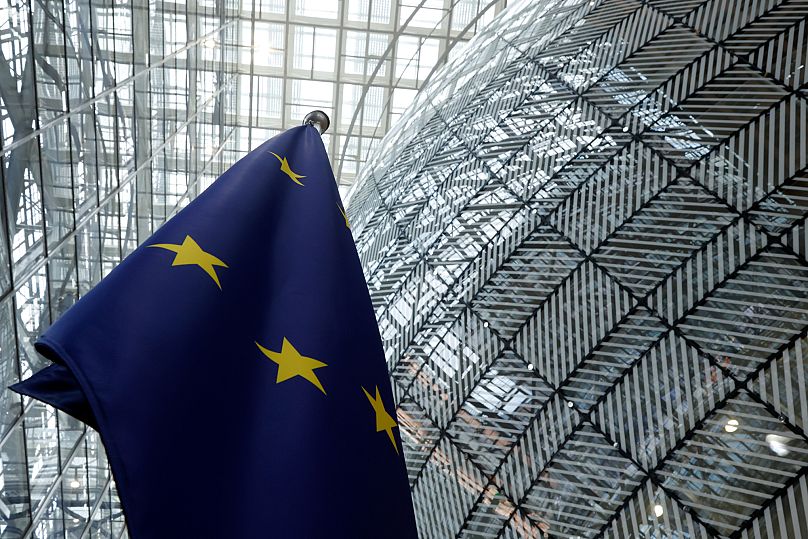Brussels" Gun Violence Surge: 20 Shootings in 10 Weeks Threaten Innocent Lives
In a troubling escalation of gun violence, Brussels has witnessed a staggering 20 shootings between June 1 and August 11, resulting in two fatalities and eight injuries. The alarming trend has prompted Julien Moinil, the General Attorney of Brussels, to voice his frustration over the inaction of Belgian and EU politicians regarding the issue. Moinil, who himself is under police protection due to threats from drug dealers, has called for immediate action and resources to combat the growing crisis.
Background & Context
The surge in gun violence in Brussels is increasingly being linked to drug trafficking and territorial disputes among criminal gangs. The city"s geographical position, particularly its proximity to the port of Antwerp—a major entry point for cocaine and other illicit drugs—has exacerbated the problem, making it a hotspot for gang-related violence. Recent statistics reveal that seven shootings occurred in just one week, with neighborhoods such as Anderlecht, Molenbeek-Saint-Jean, and Schaerbeek being the most affected.
The demographics of Brussels further complicate the situation. As of 2020, a significant 74.3% of the Brussels-Capital Region"s population was of foreign origin, with a notable proportion being non-European. Among the youth, the figures are even more striking, with 88% of individuals under 18 being of foreign origin. This diverse population adds layers to the social and economic challenges facing the city, particularly in relation to crime and public safety.
Key Developments
General Attorney Moinil has expressed his discontent with the current government response, highlighting a lack of adequate resources to tackle the escalating violence. Despite assurances from politicians, he lamented, “I get nothing, no extra resources. They have listened to me, but apart from the 30 extra people at the FGP [Federal Criminal Police], I see nothing.” His comments underscore a growing frustration among law enforcement officials who feel under-resourced in the face of increasing criminal activity.
One particularly harrowing incident involved a bullet piercing the windshield of a car occupied by a mother and her nine-year-old child during broad daylight. Moinil"s outrage was palpable as he questioned, “Are we going to wait until innocent civilians are killed before we get the necessary resources?” His call for action reflects a broader concern for public safety amid rising gun violence.
\n\n
Image for Brussels" Gun Violence Surge: 20 Shootings in 10 Weeks Threaten Innocent Lives
Broader Impact
The implications of the recent surge in violence extend beyond immediate safety concerns. Experts warn that the ongoing drug trade and gang conflicts could destabilize communities, particularly in areas already grappling with socio-economic challenges. The lack of effective surveillance—often cited as a critical gap in law enforcement—further complicates efforts to mitigate crime. Moinil pointed out that many surveillance cameras are either broken or non-existent, leaving significant blind spots in areas prone to criminal activity.
The situation has drawn parallels to similar crises in other major cities worldwide, where drug-related violence has led to increased calls for reforms in policing and community safety measures. As Brussels grapples with this crisis, the need for comprehensive policy changes that address the root causes of crime becomes increasingly urgent. Such measures must involve not only law enforcement but also community engagement and support systems to deter youth from gang involvement.
What"s Next
As the city of Brussels continues to confront this pressing issue, the focus will likely shift towards advocating for more robust governmental support and resources. Moinil"s statements may serve as a rallying point for both citizens and officials to push for immediate action. With the increasing frequency of shootings, public pressure on local and EU politicians is expected to mount, potentially leading to new policies aimed at curbing gun violence.
In the coming weeks, it will be crucial to monitor any developments regarding resource allocation for law enforcement and community safety initiatives. The ongoing debate about drug policy reform may also gain momentum as stakeholders search for effective solutions to the violence plaguing Brussels. As previously reported, similar situations in other cities have often catalyzed significant changes in policy and law enforcement practices, and Brussels may find itself at a pivotal juncture in its approach to crime and public safety.

Image for Brussels" Gun Violence Surge: 20 Shootings in 10 Weeks Threaten Innocent Lives


![[Video] Federal agents chase woman in Minneapolis during protest](/_next/image?url=%2Fapi%2Fimage%2Fthumbnails%2Fthumbnail-1768254086697-5gfcba-thumbnail.jpg&w=3840&q=75)




![[Video] Gunfire between Iraqi security forces and Sadr militias in Baghdad](/_next/image?url=%2Fapi%2Fimage%2Fthumbnails%2Fthumbnail-1768343508874-4redb-thumbnail.jpg&w=3840&q=75)
